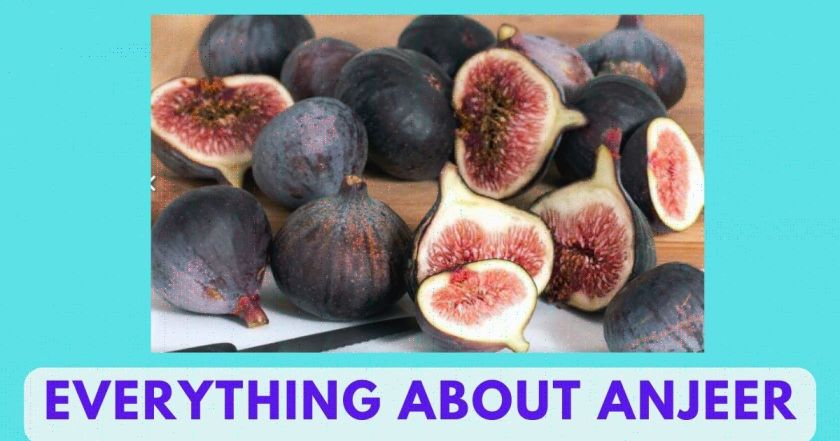Anjeer in English
What is the English name for Anjeer?
- Anjeer in English name is “Figs”
BUY ANJEER ONLINE
Anjeer in Malayalam
- Malayalam name of Anjeer is “Atti Pazham”
Anjeer in Hindi
- Anjeer meaning in Hindi is “Gulur”
BUY AFGHAN ANJEER ONLINE
Anjeer in Tamil
- Tamil name of Anjeer is “Atti Pazham”
Anjeer in Telugu
- Telugu name of Anjeer is “Athi Pallu”
Anjeer in Kannada
- Kannada name of Anjeer is “Seeme atthi”
BUY ANJEER JAM ONLINE
Anjeer in Bengali
- Bengali name of Anjeer is “Dumur”
Anjeer in Marathi
- Marathi name of Anjeer is “Anjura”

Anjeer / Anjir / Figs
India is a land of diversities. It is said that India offers everything that can be found in any other part of world. One of such foods which originated in India but now has been spread all over the world is Anjeer. Also known as Figs in English, it is an incredibly delicious fruit that’s been cultivated in the Indian subcontinent for hundreds of years and consumed by people all around the world today. In this article, we’ll be giving you some more information about this lovely little fruit.
The health benefits of anjeer are wide-ranging and plentiful; from reducing blood pressure to weight loss to even helping prevent cancer, this fruit can help keep you happy and healthy! Anjeer fruit contains rich nutrients like iron, potassium, zinc and other vitamins and minerals that are beneficial to both physical and mental health. There are different types of anjeer available on market according to their regions; some are sweet while others have mild salty taste. The benefit you get from eating dates depends upon the type of anjeer you eat. Anjeer also gives nutritional benefits too along with its delicious taste, so it’s always good to include them in your daily diet plans if you want a long healthy life span.
The fresh fruit of anjeer is green, but turns golden-brown or reddish-brown when dry. It has a crunchy texture and flavor that varies from mildly sweet to slightly tart depending on its ripeness. You can eat it as it is, use it as garnishing for desserts, or add it to your favorite recipes for added sweetness. Anjeer are widely used in Middle Eastern cuisines, where they are often eaten with dates and figs. They can also be ground into powder form and used as filling for cookies, cakes, pastries, etc., similar to how dried fruits are used in Western cuisine.
Besides, known as Indian fig, anjeer is a fruit that is packed with vitamins A, B6, and C. It also contains high levels of potassium and calcium. And while it’s fairly sweet by itself (thanks to its sugar content), it can be used in cooking as well, either when dried or soaked in water overnight. The use of anjeer dates back several centuries ago; people have been using it as part of traditional medicine for generations.
Anjeer Benefits
- Lower your cholesterol: Research shows that Anjeer fruit has many health benefits. For example, a study published in Lipids in Health and Disease indicates that consuming anjeer fruit could help lower your cholesterol levels by as much as 12 percent.
- Cancer Prevention: Studies show that consuming anjeer on a regular basis can reduce your risk of cancer.
- Boosting Immunity: Due to its vitamin A content, anjeer has long been believed to boost your immune system and help fight infections.
- Improving Digestion: The fiber found in anjeer helps improve digestion and prevent constipation.
- Treating Diabetes: Studies suggest that consuming anjeer regularly may help lower blood glucose levels in diabetic patients.
- Lowering Cholesterol Levels: Due to its low glycemic index, eating more fiber-rich foods like anjeer may lower cholesterol levels significantly over time.
- Additionally, research presented at a 2002 American Heart Association scientific meeting suggests that consuming anjeer fruit may help lower blood pressure levels.
- And according to another study presented at a 2006 American Chemical Society meeting, eating anjeer fruit may be beneficial for heart health.
- Specifically, researchers note that it contains polyphenols – antioxidants known for their positive effect on cardiovascular function.
- Furthermore, lab tests have indicated that these antioxidants have also been shown to protect against stroke in animals fed high fat diets. However, more studies are needed before scientists can confirm whether anjeer fruit is safe for human consumption.
- In addition to being good for your heart, some studies suggest that anjeer fruit may offer additional health benefits. For instance, animal studies show that it might help treat conditions such as hepatitis C and HIV/AIDS because of its antiviral properties.
As mentioned earlier, anjeer isn’t just good for you health wise—it tastes good too! You can eat them fresh or dried, though you may want to soak them before taking a bite if they’re not soft enough. They make excellent snacks because they have very few calories and contain no sodium either. Try snacking on anjeer instead of candy bars or other junk food if you want something healthier without sacrificing taste!
However, more research is needed before scientists can confirm whether consuming anjeer fruit will actually improve these conditions in humans. Lastly, while there isn’t enough evidence to recommend eating anjeer fruit regularly as part of a healthy diet just yet, some preliminary research suggests that it might be effective when used topically (on skin) to treat wounds caused by burns or radiation therapy.
Also, it should not be eaten in excess because excessive consumption may cause gas pains and stomach problems.








